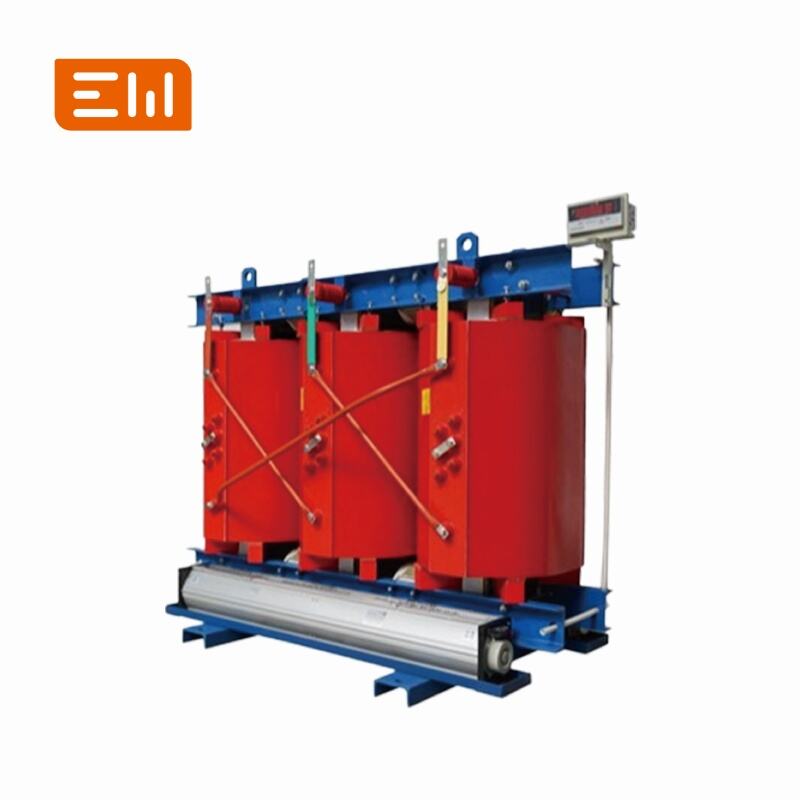Future Trends in Dry Type Transformer Technology
Dry type transformer technology has evolved significantly over the past few decades, moving from a niche product to a mainstream solution for safe and reliable power distribution. But the innovation doesn't stop here. Driven by the demands of digitalization, sustainability, and a smarter grid, the transformers of tomorrow will be even more efficient, intelligent, and compact.
This article explores the key future trends shaping the next generation of dry type transformer technology.

1. Increased Energy Efficiency
The push for sustainability and lower operational costs will continue to drive demand for higher efficiency. We can expect to see:
- Wider Adoption of Amorphous Cores: The significant reduction in no-load losses offered by amorphous alloy transformers will likely become the new standard, especially as energy costs rise and environmental regulations tighten.
- Advanced Conductor and Core Materials: Research into new alloys and nanocrystalline materials promises to reduce both load and no-load losses even further, pushing efficiencies closer to the theoretical maximum.
2. Smart Transformers and IoT Integration
The "smart transformer" is the centerpiece of the future digital grid. This involves integrating advanced monitoring and communication capabilities directly into the transformer.
- Real-Time Monitoring: Onboard sensors will continuously monitor key parameters like winding temperature, load current, voltage, and partial discharge.
- Predictive Maintenance: By analyzing this data with AI and machine learning algorithms, the transformer can predict potential failures before they happen. It can alert facility managers that a fan is failing or a connection is becoming loose, allowing for proactive maintenance instead of reactive repairs.
- Grid Integration: Smart transformers will be able to communicate with the wider electrical grid, allowing utilities to better manage power flow, balance loads, and integrate intermittent renewable energy sources more effectively.
3. More Eco-Friendly Materials
While current dry type transformers are already very eco-friendly, the next step is to improve the sustainability of the insulation materials themselves.
- Bio-Based Resins: Research is underway to develop epoxy resins derived from biological sources rather than petroleum. This would reduce the carbon footprint of the manufacturing process.
- Easier Recyclability: Future insulation systems may be designed to be more easily separated from the copper or aluminum windings at the end of the transformer's life, further improving its recyclability.
4. More Compact and Power-Dense Designs
As urban spaces become more crowded, the demand for smaller electrical equipment grows. Future trends will focus on:
- Higher Temperature Insulation: New insulation materials that can safely withstand even higher temperatures will allow engineers to design smaller, more compact transformers for the same kVA rating.
- Advanced Cooling Techniques: Innovative cooling duct designs and more efficient, quieter fan technologies will help dissipate more heat from a smaller volume.
5. Enhanced Safety Features
Safety will always be a priority. Future transformers may include more integrated safety features, such as internal arc detection systems that can trip a breaker in milliseconds, further minimizing the risk and damage from a potential arc flash event.
Conclusion: The Transformer as a Digital Asset
The dry type transformer is evolving from a passive electrical component into an intelligent, digital asset. The future is smart, efficient, and sustainable. These next-generation transformers will not only provide power but also the data and flexibility needed to manage the complex electrical grids of the 21st century.
https://www.enweielectric.com">Enwei Electric is committed to being at the forefront of this technological evolution. We are continuously innovating to bring our customers the most advanced, reliable, and efficient transformer solutions on the market. https://www.enweielectric.com/contact-us">Contact us to discuss how our forward-thinking technology can benefit your next project.

